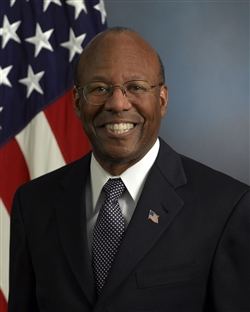Few spousal benefits will be available to gay and lesbian servicemembers after the repeal of “don’t ask, don’t tell” is implemented, according to Defense Undersecretary Clifford Stanley and Gen. James Cartwright.
Stanley and Cartwright spoke at a press conference this afternoon on the progress of implementing the repeal of DADT.
In his State of the Union address this week, President Obama said, “Starting this year, no American will be forbidden from serving the country they love because of who they love.”
Stanley said the Pentagon is still working through the process of drafting new policies needed to implement DADT repeal.
Asked to pinpoint a timetable for implementing the repeal beyond “expeditiously” or “quickly,” neither Stanley nor Cartwright was specific.
However, Cartwright said, “Expeditiously is better than dragging this out,” citing the experience of other countries in allowing gays and lesbians to serve in their armed forces. Training, they agreed, should begin in February.
Stanley and Cartwright addressed chaplains — one of the largest and most vocal groups opposing the repeal of DADT — saying they practice their own faiths and no rules changes would be needed. The two officials did not address chaplains refusing to serve gay and lesbian troops.
Addressing the issues of spousal benefits was cited as a reason for delaying the repeal of DADT.
“No policy changes regarding benefits,” Cartwright said. He cited the Defense of Marriage Act, which prevents the federal government from recognizing same-sex relationships. Specifically, Stanley and Cartwright answered that even gay soldiers who are legally married will not be allowed to take their spouses with them because of so-called Defense of Marriage.
However, they left the door open for those policies to change.
One reporter who said he has been embedded with troops said that 75 percent of the jokes he heard were gay jokes. He wondered if that was something that had to change.
“This is about leadership. Respect,” Stanley said. Although they never explained what the training would be, respect seemed to be the bulk of what would be taught.
Could a gay soldier charge that he was not promoted because a superior officer didn’t like his sexual orientation? Both said that was clear in military regulation.
“You have redress if you believe you have been aggrieved,” Cartwright said. But he didn’t want to second-guess the policy without an attorney since sexual orientation is not a protected class. But he said any soldier can appeal if he or she has been treated unfairly for any reason and no new policies were needed.
Servicemembers are still being processed under the existing DADT law, although none have been discharged since November. Stanley said depending on circumstances, soldiers could still be discharged under the law.
Asked about how servicemembers in a place like Helmond Province in Afghanistan would be trained, Stanley said, “What’s changed? I’m not going to be concerned about your orientation.”
Would servicemembers be discharged if they refuse to serve with someone who is gay? Stanley said servicemembers make sure one another are safe.
Stanley ended by saying that DADT is still in effect.
“To say anything other than that would be inappropriate,” he said.
















